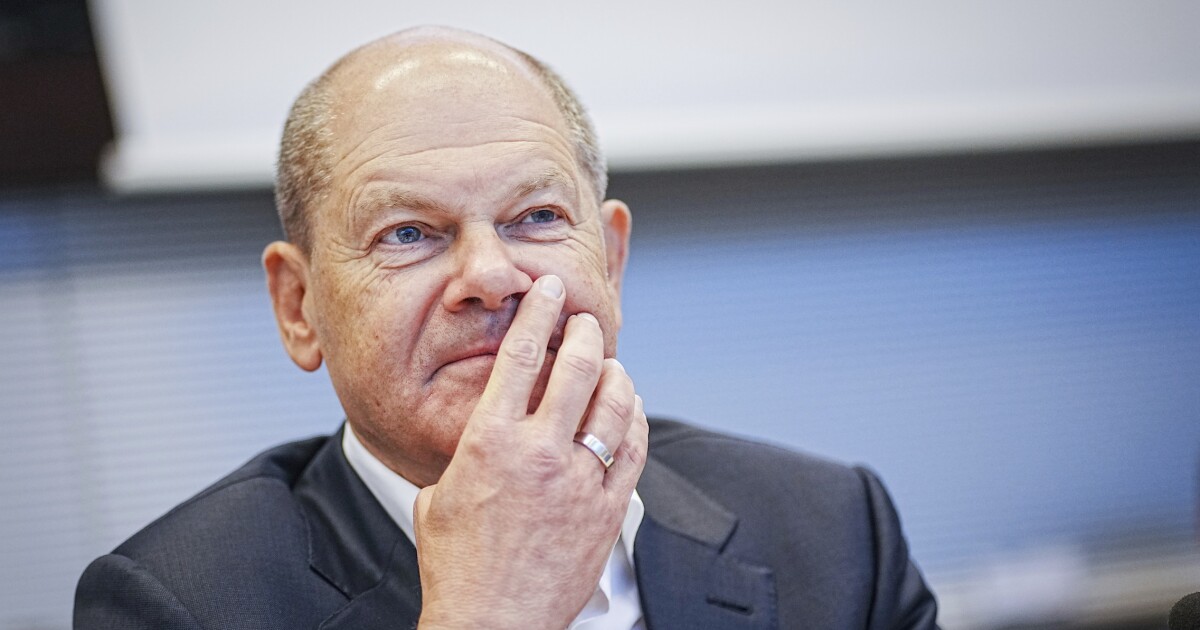

German Chancellor Olaf Scholz faces growing pressure at home and abroad to grant Ukraine access to German-made main battle tanks following the United Kingdom’s decision to provide a squadron of Challenger IIs.
“I think it becomes more and more untenable to say we will block this,” Germany’s Reinhard Butikofer, a senior member of the European Parliament, told the Washington Examiner. “As long as nobody else volunteered to provide such tanks, Germany could argue … ‘We don’t want to move just alone on our own.’ But now, everybody else is willing to move.”
Scholz has proven to be one of Europe’s most hesitant leaders when it comes to sending heavy weapons to Ukraine, to the disappointment of central and Eastern European governments that have opened their arsenals to Kyiv. Ukrainian officials have tried to acquire dozens of German-made Leopard tanks throughout the war, but Berlin has refused to transfer the tanks and blocked other countries from doing the same on the grounds that it would be inappropriate for German tanks to arrive on the battlefield if other Western countries have not agreed to take the same step.
“So this excuse has been shattered,” said Butikofer, a member of the German Green Party. “Still, the government has not announced that they would [send Leopards], even though some ministers have clearly said that they feel we should.”
UNITED KINGDOM DONATES TANKS FOR ‘EXPELLING RUSSIAN FORCES’ FROM UKRAINE
That internal pressure gained reinforcements from NATO capitals east and west of Berlin. British Defense Secretary Ben Wallace intervened in that debate from the House of Commons floor in London.
“It is hoped that the example set by the French and us will allow those countries holding Leopard tanks to donate as well,” he said. “All of this currently relies on the German government decisions — not only whether the Germans will supply their own Leopards but whether or not they’ll get permissions for others. I would urge my German colleagues to do that.”
Polish President Andrzej Duda announced last week that Warsaw stands willing to send Leopards to Ukraine, a public statement that underscored the perception of Germany falling out of step with other allies.
“We were vocal about the need to ship Patriot missile launchers to Ukraine, and our voice has been heard. Thank you for that,” Polish Prime Minister Mateusz Morawiecki said Monday during a trip to Berlin. “Ukraine’s defeat may become a prelude to World War III. Therefore, today there is no reason to block support for Kyiv and delay it indefinitely.”
Germany has agreed to send some heavy weapons to Ukraine, including multiple launch rocket systems, infantry fighting vehicles, and a Patriot battery. But Scholz — who, in contrast to Polish officials, reportedly fears that an influx of Western heavy weaponry to Ukraine could “lead to a third world war” — granted that aid only after President Joe Biden decided that the United States would do the same.
“There’s a debate in Germany at the moment about whether a tank is an offensive weapon or defensive weapon. Well, it depends on what you’re using it for. If you’re using it to defend your country, I would wager that it is a defensive weapon system,” Wallace said. “And I know there have been concerns in the German political body that they don’t want to go alone. Well, they’re not alone.”
Scholz leads the political party with the lion’s share of the power in Germany’s coalition government. His junior partners in that coalition, including German Foreign Minister Annalena Baerbock and German Vice Chancellor Robert Habeck, have shown more enthusiasm for Ukraine acquiring Western tanks.
“There is a difference between making a decision for oneself and preventing the decision of others,” Habeck said last week. “And accordingly, Germany should not stand in the way when other countries make decisions to support Ukraine, regardless of what decision Germany makes.”
Scholz accepted the resignation of German Defense Minister Christine Lambrecht, who stepped down after a yearlong tenure marred by a year of embarrassing missteps, beginning in January with Berlin’s decision to answer Ukraine’s call for aid with a shipment of 5,000 helmets.
“This [resignation] has no impact on the decision-making because this will be taken on the chancellor’s level,” a senior German military official told the Washington Examiner. “Our chancellor, he is not the quickest in his decisions.”
He is on the clock, however, because NATO Secretary-General Jens Stoltenberg, U.S. Defense Secretary Lloyd Austin, and other allied officials will descend on Ramstein Air Base on Friday for a meeting of the Ukraine Defense Contact Group — a trans-Atlantic assembly focused on military aid to Ukraine.
CLICK HERE TO READ MORE FROM THE WASHINGTON EXAMINER
“Now everybody else is willing to move, so not moving would be a solitary stance and would be exactly what Germany has promised not to go for,” Butikofer said.





